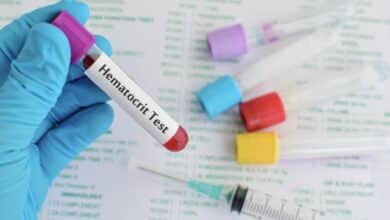Optimizing Sports Performance: The Crucial Role of Digestive System Training

In the competitive world of sports, athletes are constantly looking for ways to improve their performance.
Whether through innovative training techniques, strategic recovery, use of state-of-the-art materials, or implementation of advanced nutritional strategies, every detail counts.
In this context, the Digestive System Training (ESD), an emerging nutritional strategy that is gaining ground in endurance sports.
This article from the hand of Ruben Cuenca Arcem, sports nutritionist for high-performance athletes, and Crown Sport Nutrition, a Spanish brand specialized in high performance will be the first of several where they will inform us of the importance of this training.
In addition, you can watch the videos on the channel YouTube by Crown Sport Nutrition
What is Digestive System Training?
ESD, as the name suggests, is a regimen that trains our digestive system to improve its efficiency.
This training focuses on both the upper part of the digestive system, mainly the stomach, and the lower part, that is, the intestine.
The objective is increase the body's ability to consume and assimilate large amounts of carbohydrates, a crucial component for performance in endurance sports.
Benefits of Digestive System Training
DSU can significantly improve an athlete's ability to consume and utilize carbohydrates during training and competition.
In endurance sports, where a high carbohydrate intake is required, ESD can be a game changer.
It is not just about “eating more”, but about being able to assimilate and efficiently use those carbohydrates to improve performance.
The need for Digestive System Training
To assimilate large amounts of carbohydrates, it is necessary to consume more fructose, orA type of sugar that can be difficult to tolerate in large amounts.
This is where ESD comes into play. Through this training, the tolerance and assimilation of fructose can be increased, allowing athletes to consume more than 90 grams of carbohydrates per hour, an amount that exceeds conventional standards.
Implementation of Digestive System Training
The ESD is carried out in several phases, which can vary between 4 and 6, depending on the individual level of each athlete.
Each phase can last approximately two weeks, with a weekly frequency of three specific digestive system workouts in the early phases and two weekly workouts in the later phases.
Possible Side Effects of Digestive System Training
Like any training regimen, ESD can have some side effects.
These can include a feeling of heaviness or bloating in the stomach, reflux, nausea, intestinal bloating, gas, changes in intestinal transit or even diarrhea.
However, these side effects can be minimized with proper supervision by a sports nutritionist.
Conclusion
Digestive System Training is a promising nutritional strategy which can help endurance athletes improve their performance.
By increasing the body's ability to consume and use carbohydrates, ESD can be a cCrucial component in an endurance athlete's arsenal.
However, like any training strategy, must be implemented carefully and supervised to minimize possible side effects and maximize its benefits.
From Crown Sport Nutrition, they always strive to meet the needs of athletes and be at the forefront of scientific advances.
In addition to their classic line of products with a moderate amount of fructose, they are developing a line of products rich in carbohydrates, the line Hyper (1:0,8), For all those high performance athletes and also for all those who want to level up.
Its goal is to provide the best nutritional tools to help athletes consume high amounts of carbohydrates in the ideal ratio in the easiest way possible through the simple combination of their drinks (Hype Drink 45 y Hyper Drink 90), gels (HyperGel 30 Hydro e Hyper Gel 45) and bars (HyperBar 45).
More information about Crown Sport Nutrition on their website https://crownsportnutrition.com/
There are no previous results.




























